Fort Barraux
Fort Barraux overlooks the valley connecting Chamberey to the north and
Grenoble to the south. Near Montmelian this valley connects
with the Isere River valley flowing west from modern Albertville.
Montmelian was made into a major fortress by the Savoyards, but
the Savoyards decided to advance further. On French territory,
construction of Fort Barraux was began on this strategic location by
the Savoyards in the late 1500s incroaching on French
territory. The king of France was not immediately provoked by
this but instead waited until the fort was nearly complete before
seizing it in 1598. In French hands, the fort was a valuable
counter to the Savoyard Montmelian. In 1705, the French captured
Montmelian and destroyed the fortifications there.
In the 1630s, improvements had been made to Fort Barraux. In
1692, Vauban was sent south to improve defenses in the Alps, and as
with other forts, Vauban ordered improvements made at Fort Barraux.
In the valley below he also wanted a fort built at Pontcharra, a
bridge across the Isere that would hinder enemy movement on either side
of the river. This fort was never built, but improvements were
made to Fort Barraux.
During the Second World War, Vichy used the fort for internments and
deportations. The army abandoned the fort in 1988, but it has
been made into a historical site in the early 21st century.
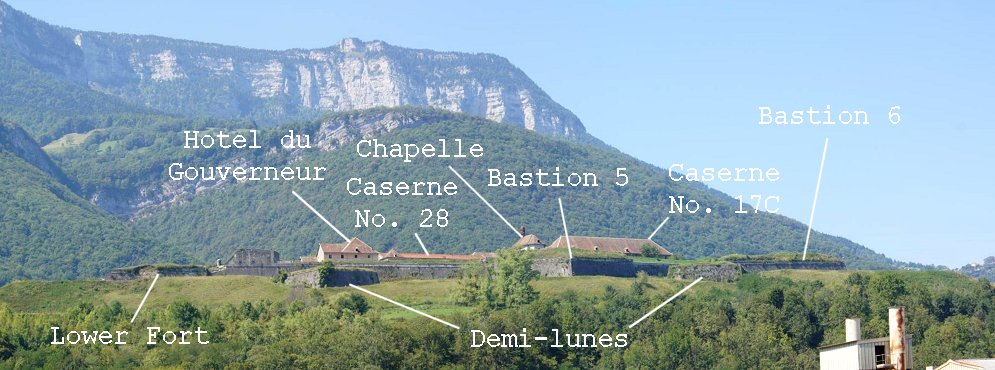
From the Valley Below
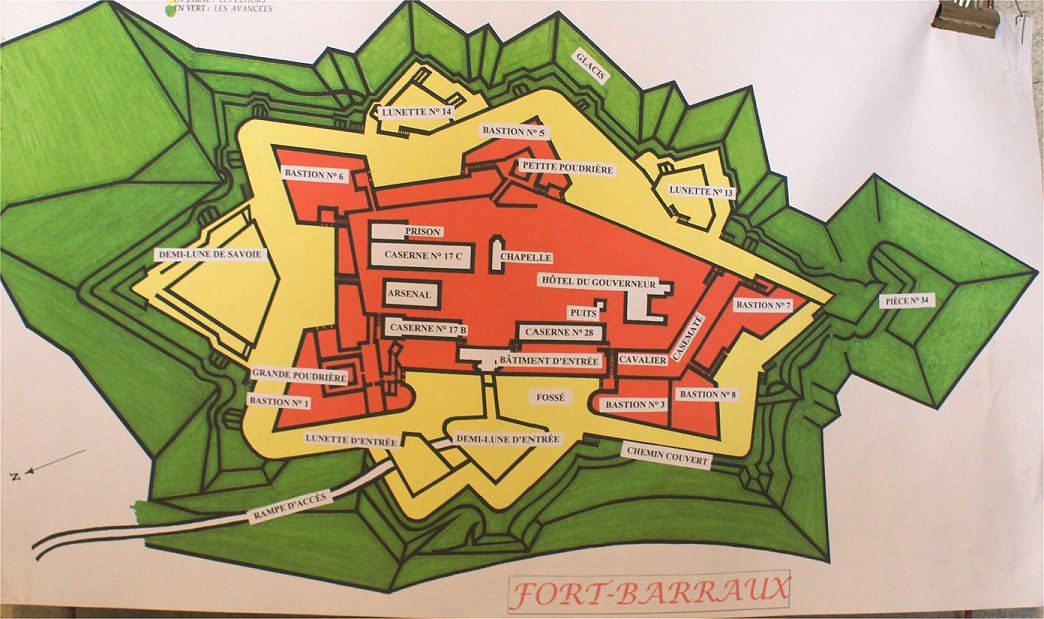

From Lunette D'Entree
Vauban's redesign straightened the curtain wall on this face and moved
the entrance here from the north side. A demi-lune and lunette
were added to protect the entrance.
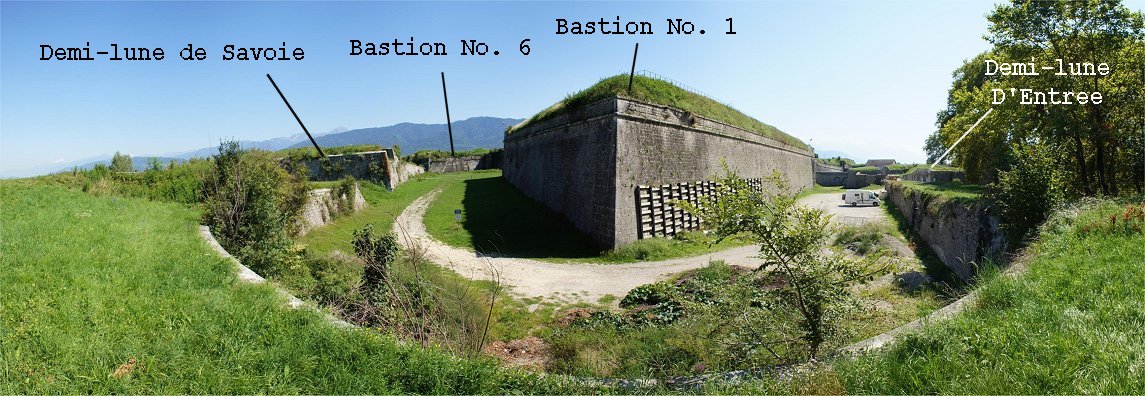
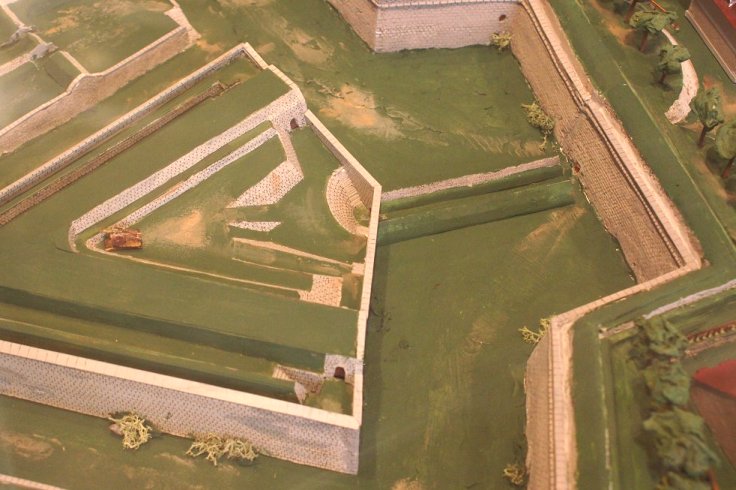
Demi-lune de Savoie
The demi-lune was connected to the curtain wall with a caponier.

Vauban had two lunettes built on the east facing part of the fort.

Demi-lune No. 13

Lower Fort Covered Way
Vauban improved the south face with additional lower levels.

Lower Fort Ditch With Traverse
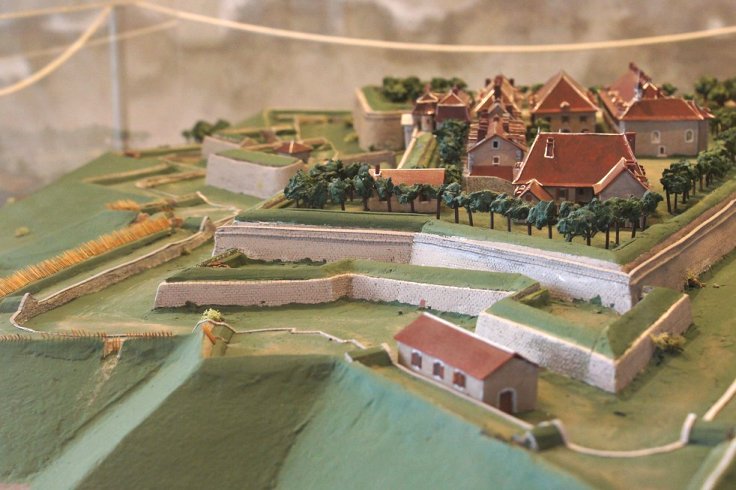
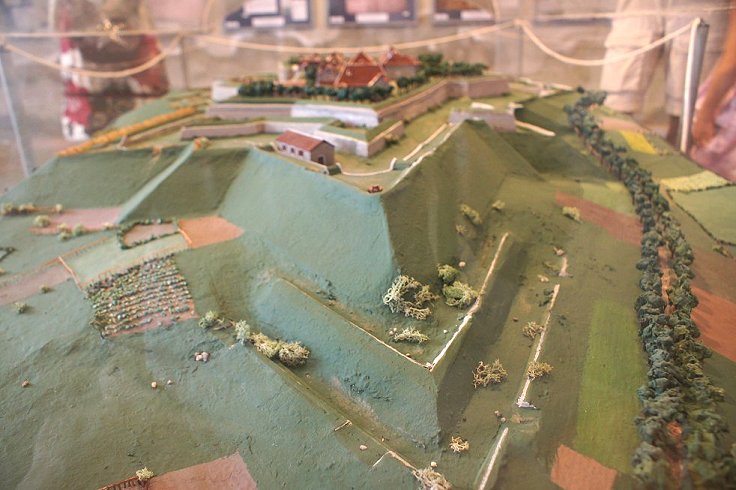
Model of Lower Fort

Entrance
Alterations in the 1700s included modification of the entrance bridge by turning the arched sections into casemates.
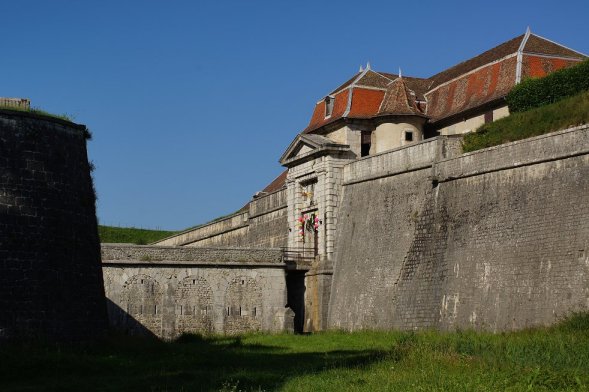

Interior
Vauban's redesign largely eliminated existing buildings and replaced them.
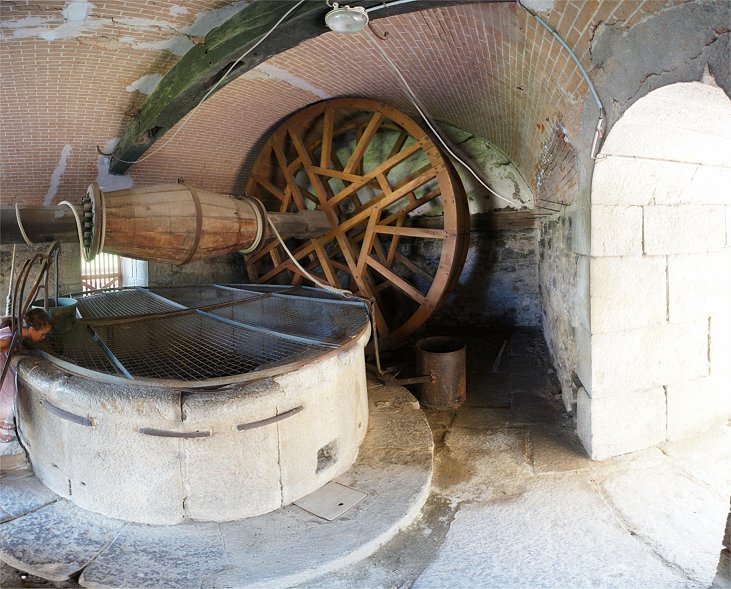
Well
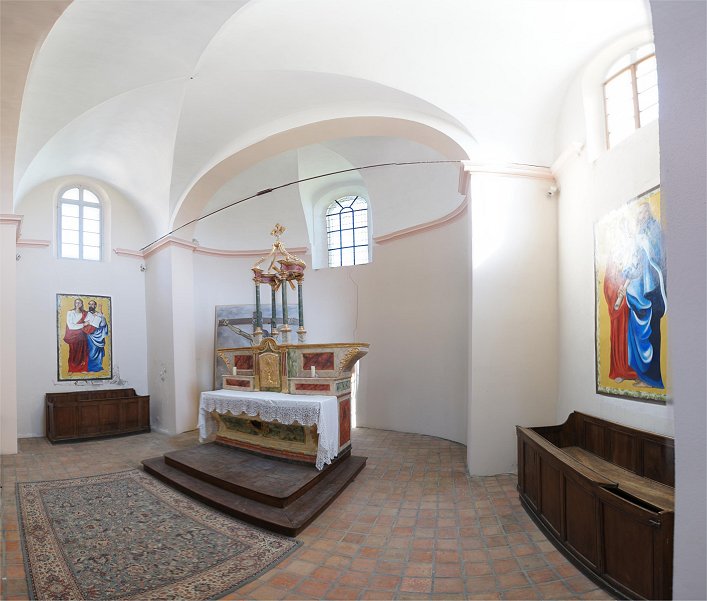
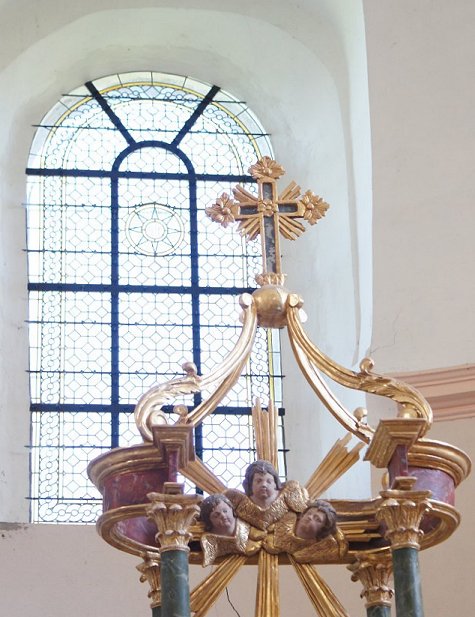
Chapelle
Copyright 2015 by John Hamill
















